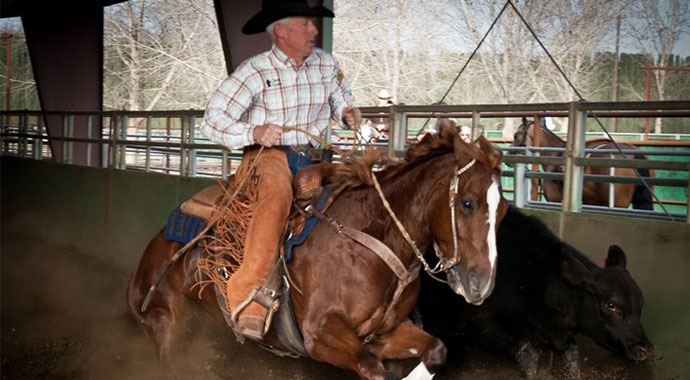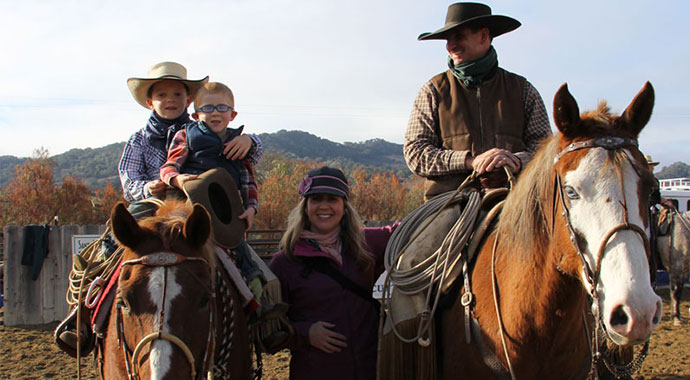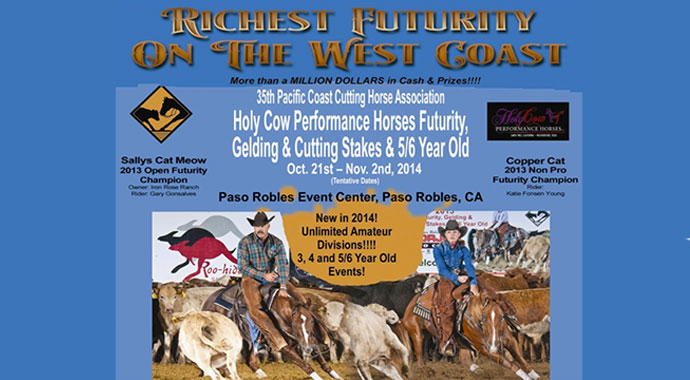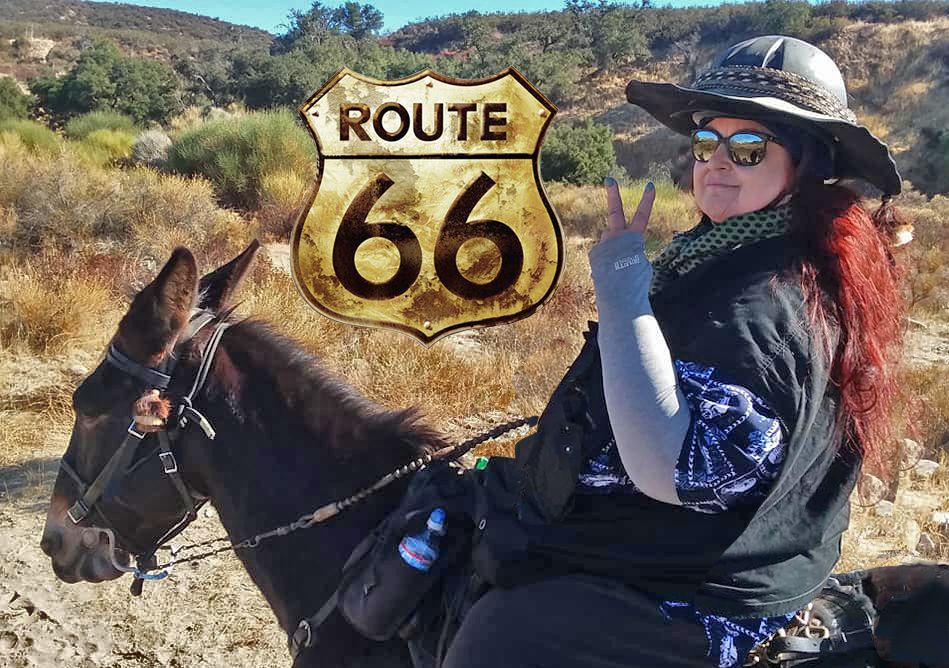“Everyday you go out there you learn something different, so that’s a good day in my book.”
Jimmy Stickler of Stickler Performance Horses is a self-proclaimed “jack of all trades” when it comes to horses. We’re inclined to describe him as something of an expert – There’s no shortage of experience-based wisdom in the hands of this horseman. Stickler Performance Horses specializes in working cowhorse, reining, cutting, roping and ranch horses. They focus on training for the public, and giving lessons, with their work leading them to Quarter Horse Shows (AQHA), as well as NRCHA and NRHA events.
Stickler Performance Horses is located at Greengate Ranch, where Jimmy, his wife Kim, and their kids, Shaley and Taite, have been managers for the last year and a half. Located on 140 acres of pristine acreage in Edna Valley, Green Gate offers a Wedding venue, Vacation Rentals, Corporate Retreats, Horse Boarding, Riding trails and Equine Training. “It’s a neat ranch, the boarders love it – they have three arenas to choose from, the big arena and cutting pen are state of the art. There are trails around the vineyard to ride, pastures for them to turn their horses out, stalls with runs, and we always have cattle to work.”
Jimmy, a Cal Poly Alumni, was raised on horseback. With parents as horse trainers, he spent the better part of his youth at horse shows and rodeos. Training horses however isn’t a linear profession as there’s always a learning curve.
“It’s a learning process, and parts of it have changed because the sport has become so refined, and you have to be so much more perfect. The little hiccups that you used to be able to get away with, like maybe dragging a lead for a stride in a lead change, you can’t do that anymore. Everything’s got to be perfect.”
For example, “The Cowhorse is three to four events that you’re dealing with all the time, and it definitely is the most challenging in my book, especially now-a-days. It used to be if you could just be good at one of the three you’d do pretty well. Now you have to be spot on in all three events to be any good, so it’s come a long ways and it’s going to go farther and become more challenging. ”
“I think you still go back to those basics with training though, the way my parents started horses and the way their parents started horses. We talk about the Jim Pauls and the Don Dodges, about how they started horses, and how they did it, basically we are still starting them that way and just refining it a little more as we go. “
If anyone would know how refined the sport has become it would be Jimmy, who has been an NRCHA Judge for 12 years, recently becoming an AQHA judge due to pressure from longtime friend and AQHA Executive Director of Judges, Alex Ross. Last year Jimmy was fortunate enough to be able to judge both the AQHA and NRCHA World Shows as well as the Snaffle Bit Futurity this year.
“I like judging, and I learn a lot when I judge. Learn a lot about what I need to do to train my horses, what I need to do to show them, and what my customers need to do to show them. So for me it has worked really well for a training operation. It gives you a different level of respect, people look at you different, even though I don’t act or feel any different, but people darn sure look at you different. “
The attention may be on him but he’s quick to point out the people who have helped him get to where he’s at today. “There are three people that have helped me with my career – Todd Crawford, Don Murphy, and Benny Guitron. I’ve known the three of them my entire life and they by far have been the ones to take me under their wing, so to speak. They knew my parents real well also, and me when I started training horses way back when. It’s kinda always been the school of hard knocks, just learn by doing, like Cal Poly’s motto, but I could always go to them for answers and they have been huge that way.”
While one of Jimmy’s proudest moments as a trainer may have been winning the very first Bridle Spectacular that the NRCHA hosted – “Watching my kids win, that has been big for me.”
To the Stickler’s, family is of the utmost importance – a quality which is reflected in the way they manage Greengate, and operate Stickler Performance Horses. “It’s a family run atmosphere. Even though it’s a business, with the rentals and weddings, its family run. We have a wedding coordinate, and an operations manager, but everyone pitches in for everything.”
Jimmy’s favorite part of the equine industry is the time he’s able to spend with his family, time that wouldn’t be afforded in another occupation. “This is one of the only things I know where I can spend all day with my wife and kids out here at the barn doing stuff, and they might not always think it’s fun doing chores, but the family is spending time together and that’s the main thing that we enjoy, it’s important.”
Kim is grateful for that as well –
“We’re pretty fortunate that our kids like horses, because a lot of our trainer friends have kids with no interest in it, so the husband and wives are going separate directions all the time, so were very fortunate that the kids do want to be here and do what he does.”
If you thought it might be hard to blend a wedding venue with a training facility, Jimmy and Kim originally had their reservations as well…But the two have gone hand in hand really well according to the Sticklers, with wedding guests using the barn and horse pastures for “photo opts” on more than one occasion.
Stickler Performance Horses blend seamlessly as well with Kim offering riding lessons to the beginners until they’ve reached the point where Jimmy takes them down to the big arena, “Where the real fun starts!”, Jimmy says with a grin.
When a horse arrives at Green Gate they begin by getting them acclimated to the facilities. “We start with teaching them some patience and some manners. The majority of people that bring them have horses walking over the top of them. So we work on the ground manners a lot when they first get here. Because the ground manners apply to when you get on their back too, it’s a respect issue.
Similarly for the beginning riders working with Kim, respect is a key factor. “We take baby steps, because a lot of people that are coming haven’t even been around horses – They are very intimidated. So it’s teaching them how to be stern, how to gain the horses respect. After a few lessons they pick that up. Later, some of the horses we put them on make them really work for it, which teaches them to take the initiative. We give a lot of lessons on Taite’s horse, World Champion Cow horse, World Champion Reiner. He’s a really cool horse, and 9 out of 10 people who come out here and take a lesson on him can’t get him out of a walk. He’s very smart, and once you figure out how to make things happen, he’ll do right what you ask him do, but he’s going to make you figure out how to do it first.”
The Sticklers see a wide variety of horse problems at Greengate. “People bring horses for training because they want them better broke, and that’s just a longer process to get there. It’s time and patience that is going to get them broke, and people just need to understand that.”
“We used to take horses for 30 days all the time – we’d ride them for thirty days and then the people would take them back. The horse would sit there for six or seven weeks and then they’d finally get on the horse and call us cussing because we didn’t fix it. So we don’t do that anymore. If you want to send a horse here, it’s a minimum of 90 days, on a fix it thing like that.
When Jimmy and Kim bring in a horse for 90 to 120 days, they ask that the owner not ride them for the first 30 days. After that they ask for them to come once a week, or once every two weeks and take lessons so they can be shown what to work on, and how to apply the training at home as well.
Training isn’t the only factor to success in the equine industry. The most important quality that Jimmy looks for in a horse is structure and balance. “I’m going to look for that horse that is balanced and structurally correct to do our job. Every now and then you’ll find a fluke that doesn’t look like he should be able to do anything, and does it really well. But for the most part, if I’m looking for colts, I’m looking for something with that balance and correctness that I think will be able to “stop”. That’s the one thing, they’ve got to stop or want to stop. We can teach them the rest of it to a point but the stopping and sliding is the individual and they have to want to do it too. “
Kim adds that, “Just like with any human, they have to have the heart and they have to want to do it. The willingness for the sport is huge for these horses as well. “
Despite the growing success of Stickler Performance Horses and the rapidly filling event calendar at Greengate Ranch – Jimmy still maintains an emphasis on patience and the value of not asking too much from a horse too soon.
“If you get 1% a day from a horse, in 100 days you will have a 100% better horse. That’s the best advice that I’ve gotten and the best that I can give.”
** Originally published 3/11/14




